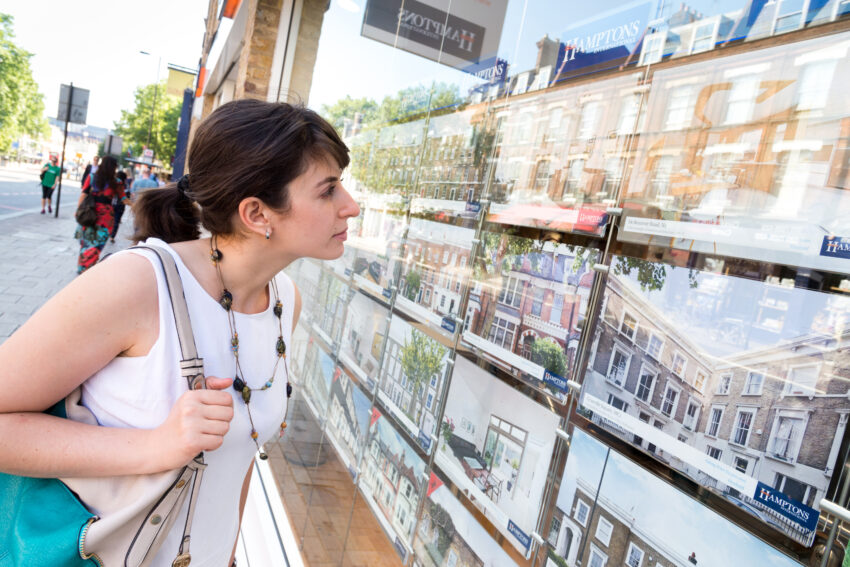House prices rose in March for the third month in a row as an easing of mortgage rates drew buyers back into the market, data from Halifax shows.
Average house prices increased by 0.8 per cent last month, after a 1.2 per cent rise in February, according to the mortgage lender’s latest house price index. Year-on-year prices were 1.6 per cent higher.
The typical UK property now costs £287,880, against £285,660 the previous month.
Kim Kinnaird, director at Halifax Mortgages, said: “The UK housing market continues to show resilience following the sharp downturn at the end of 2022. The principal factor behind this improved picture has been an easing of mortgage rates. The sudden spike in borrowing costs that we saw in November and December has now been largely reversed.”
After a lockdown-induced boom that pushed prices to record highs, the market has gone into reverse in recent months. The cost of living crunch and fears of a recession hit consumer confidence, as did the uncertainty caused by the mini-budget in September, which resulted in a jump in mortgage rates. Borrowing costs have retreated since then.
The rate on an average five-year fixed mortgage in March last year was about 1.8 per cent. That rose to above 5.5 per cent after the mini-budget but is now around 4.8 per cent.
Kinnaird said the figures suggested relative stability in the housing market at the start of 2023 “characterised by a partial recovery in activity and transactions, especially when compared to the significant drops seen at the end of last year”.
The latest Bank of England data showed mortgage approvals rose in February for the first time since August, which economists said could be a sign that the “worst is in the past”. Mortgages approved for house purchases beat economists’ expectations to reach 43,500 in February, up from 39,600 in January.
Despite the rise in approvals, overall mortgage lending fell from £2 billion in January to £700 million in February, which, outside of the pandemic period, marks the lowest level of net borrowing since April 2016.
The rise in house prices compares with figures from the mutual mortgage lender Nationwide, which showed that prices in the UK fell for the seventh month in a row in March. Nationwide said prices retreated another 0.8 per cent, taking the average value of a home in the UK down to £257,122. That was 3.1 per cent lower than a year ago and took prices back to roughly where they were in January 2022, according to its house price index.
Nationwide and Halifax’s figures are based on their own mortgage approvals.
Martin Beck, chief economic adviser to the EY Item Club, said: “Halifax’s measure of house prices in March showed another rise, contrasting with weakness in the Nationwide index, and complicating a reading of the housing market. Taking the Halifax measure in isolation, it offers another sign that the economy is holding up against headwinds from high inflation and rising interest rates much better than many expected.”
He said mortgage approvals and survey evidence of housing transactions both appeared to have bottomed out but prices still looked “very stretched on most affordability measures”. The average rate on a new mortgage has increased by over 250 basis points in only 12 months, and there is a risk that banking issues abroad may lead UK lenders to attach tighter conditions to home loans, Beck said.
Tom Bill, head of UK residential research at Knight Frank, said: “Activity has been solid but unspectacular in the UK housing market this year as the hangover from the mini-budget slowly fades. Prices are broadly in a holding pattern but will be tested this spring as supply rises and higher mortgage rates cause a sharp intake of breath among a growing number of buyers and homeowners.”
The Bank of England has raised interest rates to 4.25 per cent to tackle double-digit inflation. It has indicated that they could rise further.


